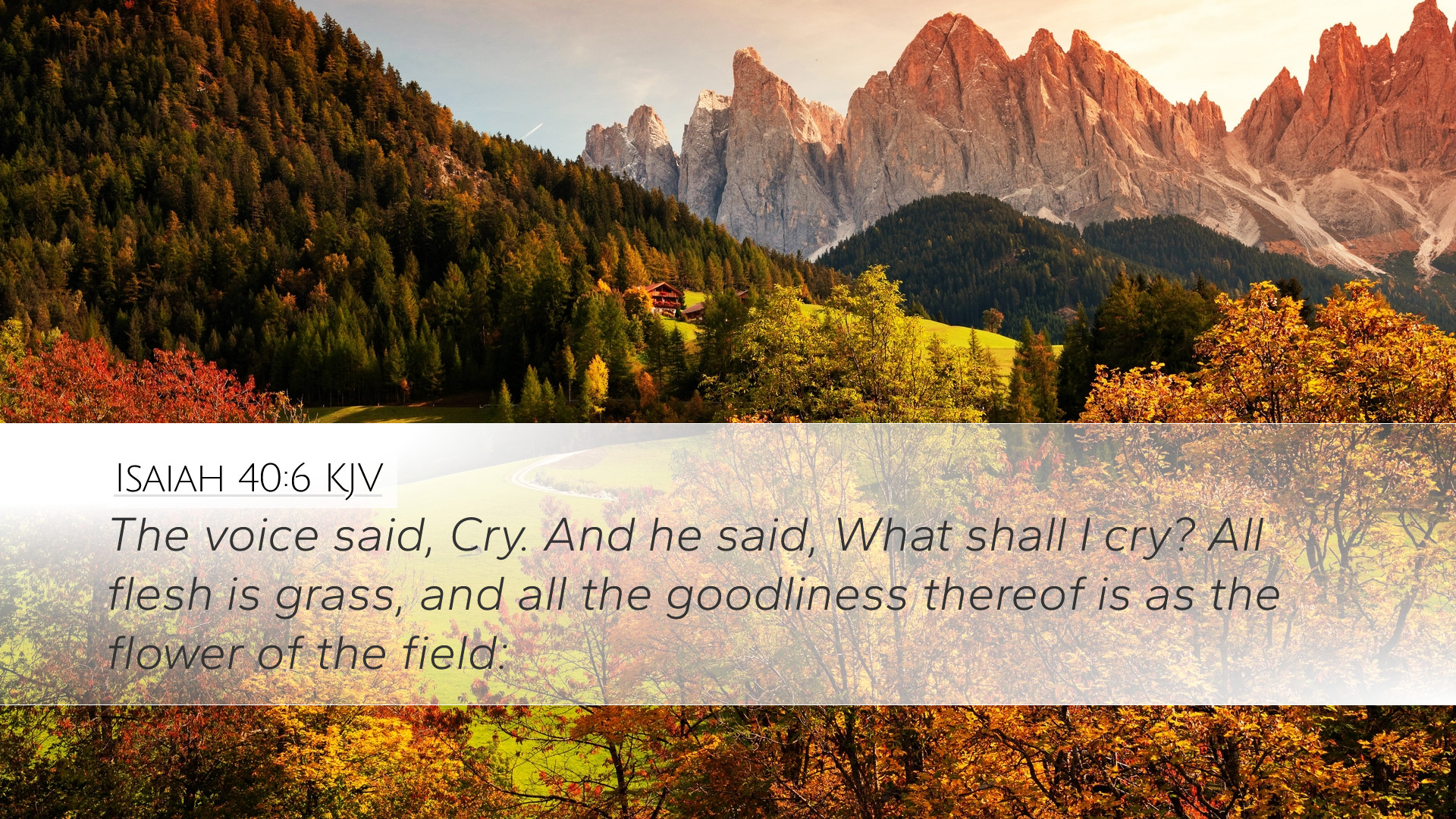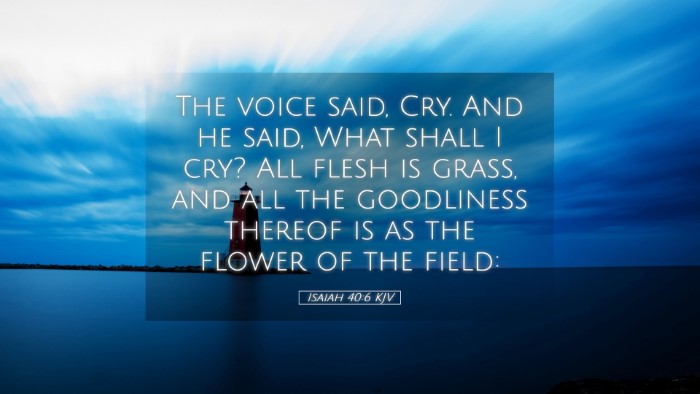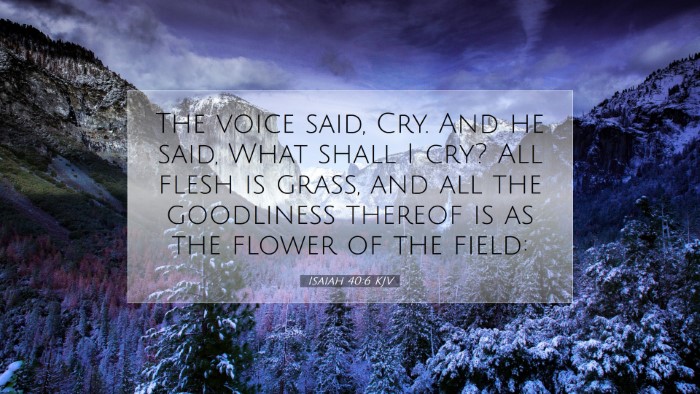Commentary on Isaiah 40:6
Verse: "The voice said, Cry. And he said, What shall I cry? All flesh is grass, and all the goodliness thereof is as the flower of the field."
Introduction
Isaiah 40 serves as a pivotal chapter in the prophetic literature of the Old Testament, providing comfort and assurance to a people in distress. This verse establishes a foundational understanding of human frailty in contrast to divine permanence.
Contextual Background
In the context of the Babylonian exile, the people of Israel are grappling with despair and hopelessness. The voice that speaks in this passage is often interpreted as God's commanding presence through a prophetic messenger. Exploring this verse reveals a deeper theological and existential truth about human nature and divine revelation.
Analysis
- The Voice of Prophecy: The proclamation to "cry" can be seen as an urgent imperative. Matthew Henry elaborates on the significance of voice as an expression of God's will being directed to His prophets to convey His messages to the people.
- Nature of Humanity: The statement "All flesh is grass" serves as a poignant reminder of human mortality. Albert Barnes emphasizes that this metaphor illustrates the transitory nature of human life, highlighting both its fragility and the fleeting nature of its glory.
- The Ephemeral Beauty: The phrase "the goodliness thereof is as the flower of the field" relates to the flourishing life that is ultimately subject to decay. Adam Clarke notes that just as flowers bloom but do not last, so too is the magnificence of human achievements doomed to perish.
- Humanity’s Dependence on God: The contrast between the permanence of God and the ephemeral nature of humanity stresses the necessity of relying on divine strength and provision. This is a fundamental theme in Isaiah, interwoven throughout his prophetic declarations.
Theological Implications
Taking into account the insights from the aforementioned commentaries, several theological implications emerge from Isaiah 40:6:
- Human frailty: This verse reiterates a major biblical theme: the frailty and impermanence of human life. The imagery of grass and flowers serves as a poignant reminder to readers today of the fleeting nature of worldly pursuits.
- Divine Assurance: The words of consolation found in this passage serve to uplift the downtrodden, providing assurance that while human strength fades, God's promises endure forever. This is a central tenet that emerges from the text.
- The Call to Proclamation: The imperative "Cry" signifies the importance of proclaiming the truth about God and humanity. It is a call not only to witness but also to reflect on the nature of existence in the light of divine reality.
Conclusion
Isaiah 40:6 serves as a heartfelt reminder of the transient nature of humanity, challenging readers to consider their own lives in the context of God's eternal purposes. The combined insights from Matthew Henry, Albert Barnes, and Adam Clarke provide a rich tapestry of understanding that encourages further reflection on God's character and human reliance on Him.
Application for Today's Believers
This verse, and its surrounding context, invites pastors, theologians, and laypersons alike to ponder the significant implications for their lives:
- The necessity for humility in acknowledging the frailty of human life.
- The encouragement to focus on eternal values rather than transient achievements.
- A reminder to be voices of hope and truth amidst despair.
- The comfort found in God’s eternal nature amidst the chaos of a changing world.


